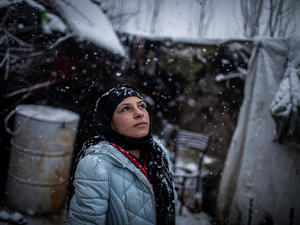UN Humanitarian Briefing on Iraq
UN Humanitarian Briefing on Iraq
There have been no reported arrivals of refugees. We hope this means that all our preparedness activities in the region have been futile, but these are still early days.
Media keep asking when we expect any Iraqi refugees to flee in substantial numbers. Well, to repeat a quip I heard here yesterday, UNHCR is a "non-prophet" organisation.
During the 1991 Gulf war there were similarly no substantial refugee movements. Major refugee flows were only seen when security problems erupted in southern and northern Iraq that sent more than 1.8 million people into neighbouring Iran and Turkey within the space of a few weeks. We hope this won't be repeated, but we must be prepared. The insecurity and persecution that leads to refugee flows does not always accompany conflict.
The situation inside Iraq rests extremely fragile, particularly in Basra, but throughout the country civilians similarly confront daily serious humanitarian needs and security problems that can lead to displacement. We are working to help countries in this region prepare for any refugee movements that may arise down the road. In our regional stockpiles in Jordan, Iran and Turkey we have sufficient relief items for more than 300,000 people. UNHCR has so far received more than $25 million of the $60 million in preparedness funds that we requested in February, while our expenditures total $29 million.
Elsewhere, we've had word that some 90 refugees living in northern Iraq have asked to be repatriated to Turkey, and we're looking into assisting them homewards. Elsewhere in Iraq, workers at the Al Tash and Makhmour refugee camps, which shelter 13,000 Iranian refugees and 9,200 Turkish refugees respectively, continue to ensure services at these camps.






